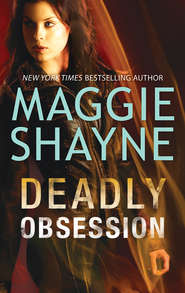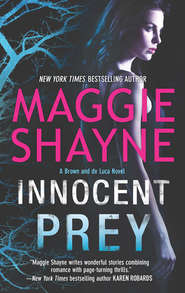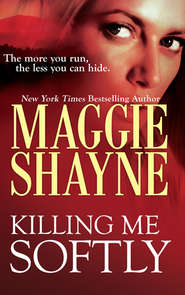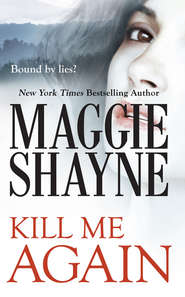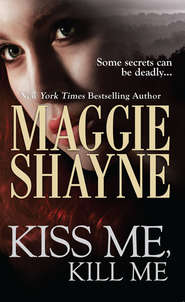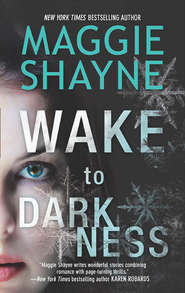По всем вопросам обращайтесь на: info@litportal.ru
(©) 2003-2025.
✖
Twilight Fulfilled
Автор
Год написания книги
2019
Настройки чтения
Размер шрифта
Высота строк
Поля
It was a beautiful image. And heartbreaking at the same time.
“I know you can hear me,” Rhiannon said again. “And I trust you’ve found that we, too, enter paradise when we leave this life. We, too, are worthy of heaven. We have souls—souls that feel, that love, that live, a thousand times more powerfully than those of the mortals who call us soulless monsters.” She closed her eyes, drew a breath. “Be well, there in the light, my beloved ones. Be well, and fear not. For those you’ve left behind will survive.” She opened her eyes, and they were cold and dark, more frightening than ever, ringed as they were in black. “And I swear by Isis Herself, you will be avenged.”
She lowered her arms slowly, but Roland still held them, and he wrapped them around her waist, enfolding her in his cloak and in his arms as if they were one.
“It is done, my love. Come, we need to brief our little warrior before we send her off into battle.”
Rhiannon turned, meeting Brigit’s eyes, holding them. There was so much there, Brigit thought, staring at her mentor, the woman she most admired, most wanted to be like and whose approval she most craved. And truly, had never been without. There was love in those dark-ringed eyes. Love and grief and fear. A lot of fear.
Fear in Rhiannon’s eyes was something so unusual that it shook Brigit right to the core.
J.W. tightened his hand on her shoulder. “It’s going to be all right, little sister.”
“Easy for you to say. Your job was to raise our living dead forebear. I’m the one who has to deal with him now that he’s up and rampaging.”
“Come,” Eric said. “Let’s return to the mansion. It’s unsafe to be out in the open for long, even here.”
One by one, and two by two, they filed out of the cemetery together, taking a soggy path that wound from the old graveyard along a narrow and twisting course to the towering structure that sat alone on the rocky, seaside cliff. The ocean was as restless tonight as the skies, as the vampires and their kin made their way higher. Winds buffeted them, howling and crying as if they, too, mourned the loss of so many.
Brigit walked alone. Normally she and J.W. would have been a pair, side by side, the only two of their kind and yet opposites in every way. But now he had his mate, the beautiful, brilliant Lucy, a vampire now. And Brigit was … she was alone, and facing the biggest challenge of her entire existence. A challenge she didn’t want and wasn’t sure she could handle.
And yet, she was all but on her way. Her bag was packed and waiting at the mansion. She’d been waiting only for the funeral rites to conclude.
Up ahead, Rhiannon, in the lead—where else?—reached the mansion’s door and stood, holding it open while the others entered the crumbling ruin.
Brigit was last in line, and as she passed, Rhiannon put a hand on her forearm. “We’ll have a talk before you leave,” she said softly. “Wait in the library.”
Great, Brigit thought. One more delay, and it was as inevitable as it would be unpleasant. The elders must want to brief her before she left on what was undoubtedly a suicide mission. Just what she needed. A lecture before dying.
Downtown Bangor, Maine
The oldest being on the planet, the first immortal, the original Noah, stood trembling on a village sidewalk in the pouring rain. He wore a dripping wet bed sheet, wrapped in the old style around his body, covering one shoulder. He’d arrogantly refused to don the clothing that had been offered him when he’d first been resurrected. The type of clothing that he now realized was necessary if he hoped to become invisible among mankind in this strange new age. People looked askance at him, ordinary humans, mortals, dashing past him from their speeding mechanical conveyances to the small and poorly designed buildings that lined the streets. In and out they ran, as if the rain would melt them. Up and down the streets they rolled in those machines. Automobiles. Cars, he’d heard them called.
He wanted to know how they worked. But later. First he wanted to become invisible. He would prefer dead, but death wasn’t an option for him right now.
Right now he had very few options, in fact. But he did have needs, and the immediate ones were urgent enough to distract him from the problem of attracting too much attention. That would come after his initial needs were met. He needed warmth, shelter from the ice-cold, unforgiving rain. So much rain.
It would have been a blessing in his time—unless it went on too long. He wondered briefly whether this rain was normal in today’s civilization, or whether the gods, the Anunaki, had yet again decreed that mankind must be brought to its knees.
Utana shook off the shiver of apprehension that thought induced and tried once again to keep his focus on his immediate requirements. He needed food, lots of it. His belly was rumbling, twisting and gnawing at him, demanding sustenance. And water—he needed sweet water to drink. Those things were first. The rest could wait. The garments to help him blend in with the mundane commoners as thick on this land as fleas upon a desert dog, the knowledge he so craved and must acquire in order to make his way in this world, the mission he must accomplish in order to extract forgiveness from the gods—all of those things could come later.
Food. Water. Shelter.
Those first.
And so he looked at the buildings he passed—red brick or wood, no beauty nor art to them, with wide openings in the walls that appeared to be empty but, he had learned, were not. In the rain it was easier to see the droplets on the hard, transparent walls. When dry, the things—windows, they called them, made of a substance known as glass—were nearly invisible.
And yet, not quite.
He moved closer to one of the windows, drawn by the smell of food, only to pause as he stared at the image he saw there. The image of a man, wearing exactly what he wore and moving exactly as he moved. Clearly a reflection, he thought, lifting his hand, watching as the image did the same. Much like what one would see when looking into still water.
He tipped his head slightly and studied his image in the glass. It was no wonder, he thought, that the mortals were disturbed by him. He looked menacing. Wild. Standing in the rain, letting it pour down upon him, while they all raced for cover. He allowed it to soak his hair, his garment, his skin. And he was bigger than most of them, too. Taller, broader. He sported several days’ growth of beard upon his face. Dark it was, and dense, and he noticed that most of the people he encountered kept their faces shaved to the skin. A few had allowed their beards to grow, but they were trimmed carefully, tame and neat.
He pushed a hand through his long, onyx-black hair, shoving the dripping locks backward. And then he returned his attention to the window, and to the people he could see beyond it. They sat at tables, enjoying bountiful food that was brought to them by smiling servants who seemed content with their lot.
Finally something that made sense to him.
He watched for a while before going to the door through which others came and went. As he started to push the door open, a man appeared and stood blocking it. Skinny, but tall enough, and smiling even though his eyes showed fear.
“I’m sorry, sir, but we’re full tonight. Do you have a reservation?”
Utana looked from the man’s head to his shoes, and up again. “I know not … reservation,” he said. “I wish food.”
“Well, um, right. But as I said, we’re full tonight.” He lifted a hand, a helpless gesture. “No room.”
“Bring food here, then. I wait.” Utana crossed his arms over his chest.
“Um, right. From out of town, are you?”
Utana only grunted at the man, no longer interested in conversing with him. Silence would best convey that the discussion was over.
“Yes, I see. Well, the thing is, it doesn’t quite work that way here. I do have a suggestion for you, however.”
“I know not suggestion. Bring food. I wait.”
“Why don’t you try the soup kitchen? Methodist church at the end of the road. See? You can see the steeple from here.”
He was pointing while he babbled, and Utana only managed to understand a word here and there. He was learning the language rapidly, but interpreting the words spoken in the rapid-fire way of the people here was still difficult. He followed the man’s pointed finger and saw the spire stabbing upward into the sky. “Ah, yes, church. I know church. House of your lonely god.”
“Yes. Yes, that’s it. Go to the church. They’ll have food for you there, and a place to sleep, as well, if you need one.”
Utana nodded, but he was more enticed by the smells coming from within, and impatient with the man, who was clearly trying to send him away without a meal. It was all very good to know there would be a bed for him at the house of the mortal’s singular god. But there was food here now, and he wasn’t leaving without partaking of some of it.
So he simply pushed the skinny man aside and continued opening the door. As he was about to enter, another man ran up and pushed against the door from within. But Utana pushed harder and shoved the man back hard, sending him flying into the wall, where he caught himself with one hand, rubbing the back of his head with the other.
Utana walked into the food place.
There was noise at first, people talking, and the clinking, chinking sounds of their ridiculous eating utensils and dishes. But as their eyes fell upon him, the eating and conversation ceased, and dead silence ensued.
Utana eyed the tables, the food, the stares of the stunned diners, no doubt surprised by the appearance of a large, dripping wet man, dressed in what James of the Vahmpeers had told him was meant to be used as bedding, but he cared not. He was focused only on food, on sustenance. His nostrils flared as he caught the scent of beef, and his gaze shot to its source.
A man in an odd white hat came through a swinging door in the back of the room, bearing in his arms a tray laden with so much bounty he could barely carry it. Each dish was covered by a lid of shining silver, and yet the aromas escaped, and Utana’s stomach churned in its need.
He did not hesitate. He strode toward the small, food-bearing man, who froze at the sight of him. His frightened eyes darted left and right as he debated whether to stay where he was or to retreat. In three strides, Utana was there, taking the tray. Then he turned and walked back through the room. People rose from their tables, backing away from the path he cut. Two people stepped forward instead, and tried to block his way, but he moved them aside with a simple sweep of his powerful arm, sending them tumbling into a nearby table. The table broke, its contents toppling into the laps of the diners who sat there, even as they scrambled to escape. A woman screamed.
Utana moved past the ruckus to the door. Servants shouted after him, asking what he thought he was doing. But he ignored them all, carrying his bounty into the street and through the pouring rain, in search of a sheltered spot in which to eat.
In a moment he spotted one of the humans’ wheeled machines, a large one, with a back like a gigantic box and a pair of doors at the rear that stood wide open. Utana marched straight to it and easily stepped up into the box. He set his bounty on its floor and pulled the doors closed behind him. Making himself comfortable, or as comfortable as he could be while still wet and freezing cold, he lifted the shining lids one by one, bending closer to smell. He had no idea what most of the dishes contained, except for the one that hid the large joint of beef he’d been smelling. It was still warm, brown on the outside and oozing with juices. He picked it up and bit in, and the flavor exploded in his mouth. Tender and luscious, pink in the middle, the meat was the finest meal he’d had since reawakening to life. He leaned back against the metal wall of the box, chewed and swallowed, and sighed in relief.






